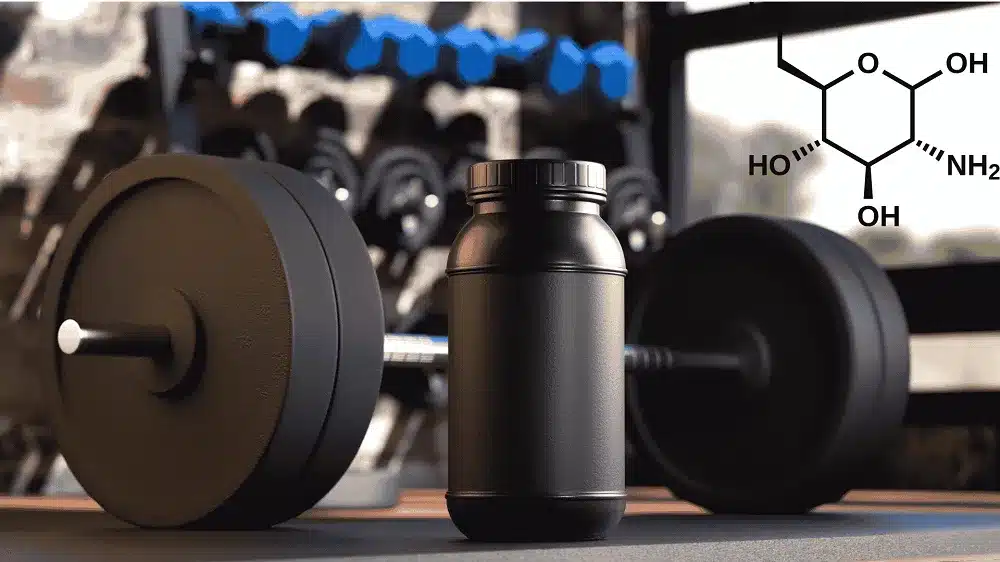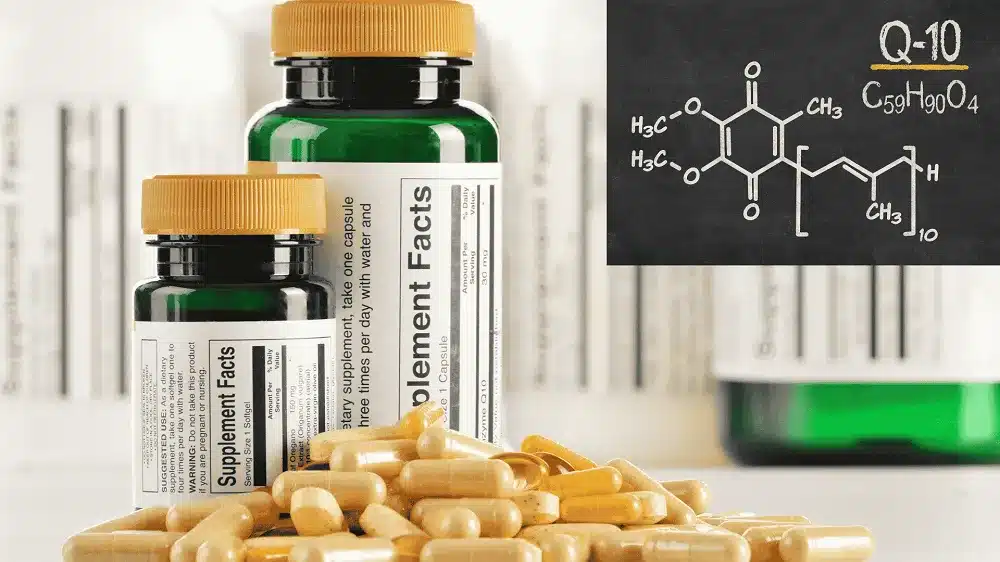บทนำ
สูตรอาหารเสริมที่ปรับแต่งเฉพาะบุคคลมีความสำคัญอย่างยิ่งสำหรับนักกีฬา เนื่องจากสามารถก้าวข้ามแนวทางโภชนาการทั่วไป เพื่อมอบความแม่นยำและการปรับให้เหมาะสมเฉพาะบุคคลในระดับที่ไม่มีใครเทียบได้ ตอบโจทย์ความต้องการทางสรีรวิทยาที่เป็นเอกลักษณ์และเปลี่ยนแปลงตลอดเวลาของการฝึกซ้อมและการแข่งขันระดับสูงโดยตรง ด้วยการนำข้อมูลส่วนบุคคล เช่น โปรไฟล์ทางพันธุกรรม ตัวบ่งชี้ทางชีวภาพ และปริมาณการฝึกซ้อมแบบเรียลไทม์ มาใช้ สูตรเฉพาะบุคคลเหล่านี้สามารถปรับแต่งสารอาหารพลังงานได้อย่างแม่นยำ ช่วยเร่งการฟื้นฟูกล้ามเนื้อ สนับสนุนการลดการอักเสบเฉพาะจุด และรักษาสมดุลอิเล็กโทรไลต์อย่างแม่นยำ ทั้งหมดนี้โดยหลีกเลี่ยงสารต้องห้ามและสารเติมแต่งที่ไม่จำเป็นอย่างเคร่งครัด กลยุทธ์ที่มีความเฉพาะบุคคลสูงนี้ไม่เพียงแต่ช่วยเพิ่มประสิทธิภาพและเร่งการฟื้นฟูเท่านั้น แต่ยังช่วยลดความเสี่ยงของการขาดสมดุลหรือการขาดสารอาหาร ซึ่งจะช่วยเพิ่มศักยภาพของนักกีฬาให้สูงสุดและส่งเสริมสุขภาพระยะยาวและความยืนยาวในอาชีพของพวกเขา.
การทำความเข้าใจอาหารเสริมสูตรเฉพาะสำหรับนักกีฬา
คำนิยาม
สูตรอาหารเสริมตามความต้องการ เป็นผลิตภัณฑ์เสริมโภชนาการที่ปรับให้เหมาะสมอย่างแม่นยำตามความต้องการทางสรีรวิทยาเฉพาะบุคคล เป้าหมายด้านสมรรถภาพที่เฉพาะเจาะจง และสถานะสุขภาพปัจจุบันของนักกีฬาแต่ละคน ซึ่งกระบวนการนี้ต้องพิจารณาข้อมูลส่วนบุคคลที่หลากหลาย ตั้งแต่ปัจจัยทางพันธุกรรมและตัวบ่งชี้ทางชีวภาพ ไปจนถึงระยะการฝึกซ้อมและพฤติกรรมการรับประทานอาหาร.

พวกเขาต่างจากอาหารเสริมกีฬาทั่วไปอย่างไร
ไม่เหมือนกับผงโปรตีนที่ผลิตจำนวนมาก, อาหารเสริมก่อนออกกำลังกาย, หรือวิตามินรวมที่นำเสนอแนวทางแบบ “ขนาดเดียวเหมาะกับทุกคน”, สูตรที่กำหนดเอง ถูกสร้างขึ้นจากพื้นฐานเพื่อบุคคลเพียงคนเดียว. อาหารเสริมทั่วไป ให้ขนาดยาและโปรไฟล์ส่วนผสมที่เป็นมาตรฐานซึ่งออกแบบมาเพื่อดึงดูดตลาดขนาดใหญ่ได้อย่างกว้างขวาง อย่างไรก็ตาม สูตรที่ปรับแต่งเฉพาะบุคคลจะปรับเปลี่ยนประเภท ส่วนผสม อัตราส่วน และปริมาณตามความขาดแคลนเฉพาะของนักกีฬา (ซึ่งระบุผ่านการทดสอบในห้องปฏิบัติการ) ความต้องการพลังงาน (ขึ้นอยู่กับกีฬาและความเข้มข้นของการฝึก) ความต้องการในการฟื้นฟู (ได้รับอิทธิพลจากปริมาณการฝึกและความเสียหายของกล้ามเนื้อ) และแม้กระทั่งความไวต่อสารหรืออาการแพ้ที่อาจเกิดขึ้นได้ นี่หมายถึงการหลีกเลี่ยงสารเติมแต่งหรือส่วนผสมที่ไม่จำเป็น และมุ่งเน้นเฉพาะสิ่งที่ได้ผลดีที่สุดสำหรับนักกีฬาคนนั้นเท่านั้น.
ความสำคัญของการปรับให้เหมาะกับบุคคลเพื่อเพิ่มประสิทธิภาพ, การฟื้นตัว, และความอดทน
การปรับให้เหมาะกับบุคคลเป็นสิ่งสำคัญอย่างยิ่ง เพราะร่างกายของนักกีฬาแต่ละคนตอบสนองต่อการฝึกซ้อมและการโภชนาการแตกต่างกันไป สิ่งที่เหมาะกับนักกีฬาคนหนึ่งอาจไม่เหมาะกับนักกีฬาอีกคนหนึ่ง หรืออาจก่อให้เกิดผลเสียได้ การเลือกอาหารเสริมให้เหมาะกับเส้นทางการเผาผลาญของร่างกายของนักกีฬาแต่ละคน ความเสี่ยงทางพันธุกรรม และสภาพร่างกายในเวลาจริงอย่างแม่นยำ สามารถช่วยให้สูตรอาหารเสริมที่ปรับแต่งตามความต้องการเฉพาะบุคคลสามารถทำได้:
- เพิ่มประสิทธิภาพ: ให้แน่ใจว่าร่างกายได้รับเชื้อเพลิงและการสนับสนุนที่จำเป็นอย่างถูกต้องเพื่อประสิทธิภาพสูงสุด ไม่ว่าจะเป็นการเพิ่มพลังระเบิด ความอดทนต่อเนื่อง หรือการมีสมาธิทางจิตใจ.
- เร่งการฟื้นตัว: ให้โครงสร้างที่แม่นยำและสารต้านการอักเสบเพื่อซ่อมแซมเนื้อเยื่อกล้ามเนื้อ เติมเต็มพลังงาน และลดอาการปวดเมื่อยได้อย่างมีประสิทธิภาพมากขึ้น.
- เพิ่มความทนทาน: รักษาให้อยู่ในระดับที่เหมาะสม การดื่มน้ำให้เพียงพอ, สมดุลของอิเล็กโทรไลต์ และระดับพลังงานตลอดการออกแรงเป็นเวลานาน ช่วยชะลอความเหนื่อยล้าและเพิ่มความทนทาน วิธีการที่ปรับให้เหมาะสมนี้นำไปสู่ผลลัพธ์ที่มีประสิทธิภาพมากขึ้น ลดการสูญเสียทรัพยากรไปกับผลิตภัณฑ์เสริมอาหารที่ไม่มีประสิทธิภาพ และลดความเสี่ยงของผลข้างเคียงที่ไม่พึงประสงค์.
วิธีการออกแบบอาหารเสริมสูตรเฉพาะสำหรับนักกีฬา
การออกแบบของ สูตรอาหารเสริมตามความต้องการ สำหรับนักกีฬา เป็นกระบวนการที่ซับซ้อนซึ่งผสานการวิเคราะห์ข้อมูลล้ำสมัยเข้ากับวิทยาศาสตร์โภชนาการขั้นสูง ก้าวไปไกลกว่าการผลิตอาหารเสริมแบบดั้งเดิม วิธีการแบบหลายมิตินี้ช่วยให้มั่นใจว่าสูตรแต่ละสูตรสอดคล้องอย่างแม่นยำกับความต้องการทางสรีรวิทยาเฉพาะตัวและเป้าหมายด้านประสิทธิภาพของนักกีฬา.
1. วิธีการเก็บรวบรวมข้อมูล
- แบบสอบถามสุขภาพ: แบบสำรวจที่ละเอียดเหล่านี้รวบรวมประวัติทางการแพทย์ของนักกีฬา สถานะสุขภาพปัจจุบัน นิสัยการกิน (รวมถึงข้อจำกัด การแพ้ และความชอบ) ปัจจัยทางไลฟ์สไตล์ (รูปแบบการนอน ระดับความเครียด) โปรแกรมการฝึกซ้อม เป้าหมายการปฏิบัติที่เฉพาะเจาะจง และอาการหรือความกังวลที่มีอยู่ ข้อมูลนี้ให้ข้อมูลเชิงคุณภาพเบื้องต้นเพื่อเข้าใจบริบทโดยรวมของพวกเขา.
- การตรวจเลือด: การวิเคราะห์เลือดในห้องปฏิบัติการให้ข้อมูลเชิงลึกที่สำคัญเกี่ยวกับชีวเคมีภายในของนักกีฬา ตัวชี้วัดหลักที่ประเมินได้แก่:
- ภาวะขาดสารอาหาร: ระดับของวิตามินที่จำเป็น (เช่น วิตามินดี, บี12), แร่ธาตุ (เช่น เหล็ก, แมกนีเซียม, สังกะสี), และกรดไขมัน (เช่น โอเมก้า-3).
- ระดับฮอร์โมน: ฮอร์โมนเทสโทสเตอโรน, คอร์ติซอล, ฮอร์โมนไทรอยด์, ซึ่งมีผลกระทบต่อพลังงาน, การฟื้นฟู, และการเผาผลาญ.
- ตัวบ่งชี้การอักเสบ: โปรตีน C-reactive (CRP) ซึ่งบ่งชี้ถึงการอักเสบทั่วร่างกายที่อาจขัดขวางการฟื้นตัวและประสิทธิภาพ.
- ตัวบ่งชี้ความเสียหายของกล้ามเนื้อ: ระดับครีเอทีนไคเนส (CK) ซึ่งสะท้อนถึงระดับการสลายตัวของกล้ามเนื้อหลังการออกกำลังกาย.
- สมดุลของอิเล็กโทรไลต์: โซเดียม, โพแทสเซียม, คลอไรด์, จำเป็นสำหรับการรักษาความชุ่มชื้นและการทำงานของเส้นประสาท.
- การวิเคราะห์ดีเอ็นเอ (นิวทริโอกอมิกส์): การทดสอบทางพันธุกรรมให้ข้อมูลเชิงลึกเกี่ยวกับวิธีที่ยีนของแต่ละบุคคลมีอิทธิพลต่อการตอบสนองต่อสารอาหารต่าง ๆ การออกกำลังกาย และความเครียด ซึ่งสามารถเปิดเผย:
- การเผาผลาญสารอาหาร: พวกเขาดูดซึมหรือใช้ประโยชน์จากวิตามินบางชนิดได้อย่างมีประสิทธิภาพเพียงใด (เช่น ยีน MTHFR ที่ส่งผลต่อการเผาผลาญโฟเลต).
- ความไวต่อคาเฟอีน: ความแปรผันทางพันธุกรรมที่มีผลต่อการสลายตัวของคาเฟอีน.
- ความโน้มเอียงต่อการอักเสบหรือความเครียดออกซิเดชัน: ยีนที่เกี่ยวข้องกับศักยภาพในการต้านอนุมูลอิสระ.
- ความเร็วในการฟื้นตัว: เครื่องหมายทางพันธุกรรมที่เกี่ยวข้องกับการซ่อมแซมและการฟื้นตัวของกล้ามเนื้อ.
- ตัวชี้วัดของอุปกรณ์สวมใส่: ข้อมูลจากสมาร์ทวอทช์, ฟิตเนสแทร็กเกอร์, และเซ็นเซอร์ชีวภาพอื่น ๆ ให้ข้อมูลเชิงลึกแบบเรียลไทม์อย่างต่อเนื่องเกี่ยวกับการตอบสนองทางสรีรวิทยาของนักกีฬา:
- ความแปรปรวนของอัตราการเต้นของหัวใจ (HRV): ตัวบ่งชี้สถานะการฟื้นตัวและความสมดุลของระบบประสาท.
- คุณภาพการนอนหลับ: ระยะเวลา, ระยะการนอนหลับ, และการรบกวน, ซึ่งมีความสำคัญต่อการฟื้นฟูและหน้าที่ทางปัญญา.
- ระดับกิจกรรม & ภาระการฝึกซ้อม: จำนวนก้าว แคลอรี่ที่เผาผลาญ ระยะทาง ความเข้มข้น และระยะเวลาของการออกกำลังกาย ช่วยในการวัดการใช้พลังงานและความต้องการในการฟื้นฟู.
- สถานะการดื่มน้ำ: อุปกรณ์สวมใส่ขั้นสูงบางชนิดสามารถประมาณอัตราการขับเหงื่อและการสูญเสียของเหลวได้.
2. บทบาทของปัญญาประดิษฐ์ในการวิเคราะห์ความเข้มข้นของการฝึกซ้อม, อาหาร, และความต้องการในการฟื้นตัวเพื่อการกำหนดสูตรอย่างแม่นยำ
- การบูรณาการข้อมูลแบบองค์รวมและการจดจำรูปแบบ อัลกอริทึมของ AI สามารถรับข้อมูลและเชื่อมโยงข้อมูลจำนวนมากที่มีความหลากหลาย (จากแบบสอบถาม, การทดสอบในห้องปฏิบัติการ, DNA, และอุปกรณ์สวมใส่) ซึ่งมนุษย์ไม่สามารถประมวลผลได้ด้วยตนเอง. มันสามารถระบุรูปแบบที่ซับซ้อน, ความสัมพันธ์, และความผิดปกติที่บ่งชี้ถึงความต้องการทางโภชนาที่เฉพาะเจาะจงหรือความไม่สมดุล.
- การสร้างแบบจำลองเชิงคาดการณ์ส่วนบุคคล ตามความเข้มข้นของการฝึกซ้อม, ปริมาณอาหารที่รับประทาน, และตัวชี้วัดการฟื้นตัวของนักกีฬา, ระบบปัญญาประดิษฐ์สามารถทำนายความต้องการสารอาหารที่เฉพาะเจาะจงได้ ตัวอย่างเช่น หากข้อมูลจากอุปกรณ์สวมใส่ของนักกีฬาแสดงให้เห็นถึงปริมาณการฝึกซ้อมที่สูงอย่างต่อเนื่องและคุณภาพการนอนที่ไม่ดี ระบบปัญญาประดิษฐ์อาจแจ้งเตือนถึงความต้องการที่เพิ่มขึ้นของสารอาหารที่ช่วยในการปรับตัว, แมกนีเซียม, หรือกรดอะมิโนที่ช่วยในการฟื้นตัว.
- การเพิ่มประสิทธิภาพการทำงานร่วมกันของส่วนผสมและปริมาณการใช้: ปัญญาประดิษฐ์สามารถวิเคราะห์วรรณกรรมทางวิทยาศาสตร์ที่กว้างขวางและข้อมูลการทดลองทางคลินิกเพื่อกำหนดการผสมผสานที่เหมาะสมที่สุดและปริมาณที่แม่นยำของส่วนผสมที่ทำงานร่วมกันอย่างมีประสิทธิภาพสำหรับโปรไฟล์ของนักกีฬาแต่ละคนได้ สามารถระบุปฏิกิริยาของส่วนผสมที่อาจเกิดขึ้นได้ (ทั้งบวกและลบ) และทำให้แน่ใจว่าแต่ละส่วนประกอบถูกนำมาใช้ในระดับที่มีประสิทธิภาพทางการรักษาและปลอดภัย หลีกเลี่ยงการให้เกินขนาดหรือให้ไม่เพียงพอ.
- การปรับสูตรแบบไดนามิก เมื่อช่วงการฝึกซ้อมของนักกีฬาเปลี่ยนแปลง หรือเมื่อมีข้อมูลใหม่จากอุปกรณ์สวมใส่หรือการทดสอบในห้องปฏิบัติการเข้ามา ระบบ AI สามารถประเมินและแนะนำการปรับเปลี่ยนสูตรเฉพาะบุคคลได้อย่างยืดหยุ่น ซึ่งช่วยให้ผลิตภัณฑ์เสริมอาหารยังคงมีความเหมาะสมและมีประสิทธิภาพตามการเปลี่ยนแปลงของร่างกายและเป้าหมายของนักกีฬา.
- การลดความเสี่ยง ระบบ AI สามารถตรวจสอบข้อมูลสุขภาพของนักกีฬาได้กับฐานข้อมูลของปฏิกิริยาหรือข้อห้ามระหว่างยาและสารอาหารที่ทราบแล้ว โดยจะแจ้งเตือนความเสี่ยงที่อาจเกิดขึ้น และทำให้แน่ใจว่าสูตรที่เสนอมีความปลอดภัยสำหรับบุคคลนั้น.
3. ส่วนผสมทั่วไป
- กรดอะมิโนสายโซ่กิ่ง (BCAAs): ลิวซีน, ไอโซลิวซีน, วาลีน – มีความสำคัญต่อการสังเคราะห์โปรตีนในกล้ามเนื้อ ลดการสลายตัวของกล้ามเนื้อระหว่างการออกกำลังกาย และช่วยในการฟื้นฟู.
- อิเล็กโทรไลต์: โซเดียม, โพแทสเซียม, แมกนีเซียม, แคลเซียม – จำเป็นต่อการทำงานของเส้นประสาท, การหดตัวของกล้ามเนื้อ, และการรักษาความชุ่มชื้น, โดยเฉพาะสำหรับนักกีฬาที่มีอัตราการเหงื่อออกสูง.
- ครีเอทีน: เพิ่มการผลิต ATP (พลังงาน) ซึ่งนำไปสู่ความแข็งแรง พลังงาน และมวลกล้ามเนื้อที่เพิ่มขึ้น.
- เบต้า-อะลานีน: บัฟเฟอร์กรดแลคติก ช่วยชะลอความเหนื่อยล้าของกล้ามเนื้อ และปรับปรุงประสิทธิภาพในการออกกำลังกายที่มีความเข้มข้นสูง.
- อะแดปโตเจน: สมุนไพรเช่น Ashwagandha, Rhodiola Rosea – ช่วยร่างกายปรับตัวต่อความเครียดทางร่างกายและจิตใจ, ปรับปรุงความอดทน, และช่วยในการฟื้นฟู.
- วิตามิน (รูปแบบที่ออกฤทธิ์): เช่น เมทิลโคบาลามิน (วิตามินบี12), ไพริดอกซาล-5-ฟอสเฟต (วิตามินบี6), แอล-เมทิลโฟเลต (โฟเลต), วิตามินดี3, วิตามินเค2 – จำเป็นสำหรับการเผาผลาญพลังงาน, การทำงานของระบบภูมิคุ้มกัน, สุขภาพกระดูก, และการส่งสัญญาณของเส้นประสาท มักให้ในรูปแบบที่มีชีวประสิทธิผลสูง.
- แร่ธาตุ (รูปแบบคีเลต): เช่น แมกนีเซียมไกลซิเนต, ซิงค์พิโคลิเนต, เหล็กบิสไกลซิเนต – มีความสำคัญอย่างยิ่งต่อการทำงานของร่างกายนับไม่ถ้วน ให้ในรูปแบบที่ดูดซึมได้ง่ายและไม่ระคายเคืองต่อกระเพาะอาหาร.
- กรดไขมันโอเมก้า-3: EPA และ DHA – สารต้านการอักเสบที่มีประสิทธิภาพสูง ช่วยสนับสนุนสุขภาพข้อต่อ การทำงานของระบบหัวใจและหลอดเลือด และสุขภาพสมอง.
- สารต้านอนุมูลอิสระ: กรดอัลฟาไลโปอิก, เอ็น-อะเซทิลซิสเตอีน (NAC), แอสตาแซนธิน, โคเอนไซม์คิวเท็น (CoQ10) – ต่อต้านความเครียดออกซิเดชันที่เกิดจากการออกกำลังกายอย่างหนัก ช่วยฟื้นฟูและส่งเสริมสุขภาพเซลล์.
- การสนับสนุนระบบย่อยอาหาร: โปรไบโอติก, พรีไบโอติก, เอนไซม์ย่อยอาหาร – เพื่อเพิ่มประสิทธิภาพการดูดซึมสารอาหารและสุขภาพลำไส้ ซึ่งมีความสำคัญอย่างยิ่งต่อสุขภาพโดยรวมและประสิทธิภาพการทำงาน.
4. แบบฟอร์มเสริม
- แคปซูล: รูปแบบที่พบได้ทั่วไปและสะดวกสำหรับการวัดปริมาณส่วนผสมแต่ละชนิดหรือส่วนผสมที่ผสมไว้อย่างแม่นยำ. พวกมันง่ายต่อการกลืนและสามารถปกปิดรสชาติที่ไม่พึงประสงค์ได้.
- ผง: มีความหลากหลายสูง สามารถใช้ในปริมาณมากและผสมได้ง่ายกับเชค สมูทตี้ หรือน้ำ เหมาะอย่างยิ่งสำหรับสูตรก่อน ระหว่าง หรือหลังการออกกำลังกายที่ต้องการการดูดซึมอย่างรวดเร็ว.
- ชุดเอกสารประจำวัน: ซองแบ่งปริมาณล่วงหน้าบรรจุสารสกัดหลากหลายชนิดสำหรับหนึ่งวัน แคปซูล, แท็บเล็ต, หรือ ผง. ซึ่งช่วยให้การปฏิบัติตามข้อกำหนดประจำวันง่ายขึ้น และทำให้แน่ใจว่านักกีฬาได้รับส่วนผสมที่ถูกต้อง.
- เจล: มักใช้เพื่อเพิ่มพลังงานและอิเล็กโทรไลต์อย่างรวดเร็วระหว่างการแข่งขันที่ต้องใช้ความอดทน เป็นรูปแบบของคาร์โบไฮเดรตและแร่ธาตุที่สะดวกและย่อยง่าย.
- ของเหลว/ทิงเจอร์: สามารถให้การดูดซึมที่รวดเร็วสำหรับสารอาหารบางชนิด แม้ว่าจะพบได้น้อยกว่าสำหรับสูตรผสมที่ซับซ้อนตามความต้องการเฉพาะ

ประโยชน์ของอาหารเสริมสูตรเฉพาะสำหรับนักกีฬา
อาหารเสริมสูตรเฉพาะมอบข้อได้เปรียบที่โดดเด่นสำหรับนักกีฬา โดยก้าวข้ามข้อจำกัดของผลิตภัณฑ์ทั่วไป มอบแนวทางที่ปรับแต่งอย่างเฉพาะเจาะจงและมีประสิทธิภาพสูงสำหรับโภชนาการด้านกีฬา.
1. การเพิ่มประสิทธิภาพที่ปรับแต่งอย่างเหมาะสม
- การเติมเชื้อเพลิงอย่างแม่นยำ สูตรเฉพาะที่ปรับแต่งให้เหมาะสมช่วยให้ได้สัดส่วนที่แม่นยำของคาร์โบไฮเดรต ไขมัน และกรดอะมิโนเฉพาะที่จำเป็นในการตอบสนองความต้องการพลังงานที่เป็นเอกลักษณ์ของนักกีฬาสำหรับกีฬา ความเข้มข้นของการฝึกซ้อม และระยะเวลาในการฝึกซ้อม สิ่งนี้ช่วยให้มั่นใจได้ถึงพลังงานที่คงที่ เพิ่มสมาธิ และเสริมสร้างการทำงานของกล้ามเนื้อในระหว่างการแสดงผลงาน.
- ความแข็งแรงและพลังที่มุ่งเป้า ส่วนผสมเช่นครีเอทีน, เบตา-อะลานีน, หรือกรดอะมิโนเฉพาะสามารถถูกวัดปริมาณได้อย่างแม่นยำเพื่อสนับสนุนการเจริญเติบโตของกล้ามเนื้อ, เพิ่มกำลังการผลิต, และลดความเหนื่อยล้า, ซึ่งส่งผลโดยตรงต่อการปรับปรุงสมรรถภาพทางกีฬา.
2. การฟื้นฟูที่รวดเร็วและการป้องกันการบาดเจ็บ
- การซ่อมแซมกล้ามเนื้อที่ดียิ่งขึ้น: โดยการให้โปรตีนและกรดอะมิโนในประเภทและอัตราส่วนที่เฉพาะเจาะจง (เช่น BCAA ที่มีลิวซีนสูง, กลูตามีน) สูตรที่ปรับแต่งเฉพาะจะเพิ่มประสิทธิภาพการสังเคราะห์โปรตีนของกล้ามเนื้อและการซ่อมแซมอย่างมีนัยสำคัญ ทำให้เวลาการฟื้นตัวหลังการออกกำลังกายอย่างหนักเร็วขึ้นอย่างมาก.
- ลดการอักเสบและความเครียดออกซิเดชัน สูตรผสมเฉพาะบุคคลประกอบด้วยสารต้านการอักเสบที่มีประสิทธิภาพสูง (เช่น คูร์คูมินที่มีชีวประสิทธิผลสูง, กรดไขมันโอเมก้า-3) และสารต้านอนุมูลอิสระ (เช่น วิตามินซี, แอสตาแซนธิน) ในปริมาณที่เหมาะสมเพื่อลดความเสียหายที่เกิดจากการออกกำลังกายและส่งเสริมการฟื้นฟูที่รวดเร็วขึ้น.
- การสนับสนุนเนื้อเยื่อข้อต่อและเนื้อเยื่อเกี่ยวพัน ปริมาณเฉพาะของส่วนผสมเช่น คอลลาเจนเปปไทด์, กลูโคซามีน หรือ MSM สามารถรวมเข้าด้วยกันเพื่อเสริมสร้างความแข็งแรงของข้อต่อ ลดความไม่สบาย และลดความเสี่ยงของการบาดเจ็บทางกีฬาที่พบบ่อย.
- สมดุลอิเล็กโทรไลต์ที่แม่นยำ สูตรเฉพาะบุคคลสามารถปรับให้ตรงกับอัตราการขับเหงื่อและโปรไฟล์การสูญเสียอิเล็กโทรไลต์ของนักกีฬาแต่ละคน ช่วยป้องกันการเป็นตะคริว เพิ่มประสิทธิภาพการเติมน้ำให้ร่างกาย และรักษาการทำงานที่สำคัญของร่างกายในระหว่างการออกกำลังกายเป็นเวลานาน.
3. การตอบสนองความต้องการทางสรีรวิทยาของแต่ละบุคคล
- การใช้ประโยชน์สารอาหารที่ปรับให้เหมาะกับแต่ละบุคคล: โดยการผสมผสานข้อมูลเชิงลึกจากการวิเคราะห์ DNA (นิวทริเจนอมิกส์) และการตรวจเลือด อาหารเสริมที่ปรับให้เหมาะสมเฉพาะบุคคลจะมอบสารอาหารในรูปแบบที่ร่างกายดูดซึมได้ดีที่สุดและในปริมาณที่เหมาะสมที่สุดสำหรับพันธุกรรมเฉพาะและกระบวนการเมตาบอลิซึมของนักกีฬาแต่ละคน.
- การแก้ไขข้อบกพร่องเฉพาะ: ผลการทดสอบในห้องปฏิบัติการสามารถระบุได้อย่างแม่นยำ วิตามิน, แร่ธาตุ หรือสารอาหารอื่น ๆ ที่ขาดแคลน สูตรเฉพาะที่ปรับแต่งจะตรงกับความต้องการที่ระบุไว้เหล่านี้โดยตรง ทำให้มั่นใจได้ว่านักกีฬาจะได้รับสิ่งที่ขาดไปอย่างแม่นยำ แทนที่จะได้รับวิตามินรวมทั่วไป.
- การรองรับข้อจำกัดด้านอาหาร: นักกีฬาที่มีอาการแพ้ (เช่น กลูเตน, ผลิตภัณฑ์นม) หรือมีความต้องการทางโภชนาเฉพาะ (เช่น วีแกน) สามารถได้รับสูตรอาหารที่ปราศจากส่วนผสมที่ไม่ต้องการอย่างสมบูรณ์ ซึ่งช่วยให้ปลอดภัยและปฏิบัติตามข้อกำหนดได้.
4. ลดความเสี่ยงและเพิ่มความปลอดภัยสูงสุด
- การปฏิบัติตามข้อกำหนดต่อต้านการใช้สารต้องห้าม ผู้ให้บริการอาหารเสริมแบบกำหนดเองที่มีชื่อเสียงจะคัดสรรและทดสอบส่วนผสมอย่างพิถีพิถันเพื่อให้แน่ใจว่าปราศจากสารต้องห้าม มอบความสบายใจที่สำคัญสำหรับนักกีฬาที่ต้องการแข่งขัน.
- การป้องกันการเสริมอาหารเกินความจำเป็น: ต่างจากผลิตภัณฑ์ทั่วไปที่นักกีฬาอาจบริโภคสารอาหารบางชนิดในปริมาณมากเกินไปโดยไม่รู้ตัวจากการใช้ผลิตภัณฑ์เสริมอาหารหลายชนิดร่วมกัน สูตรที่ปรับเฉพาะบุคคลจะช่วยให้มั่นใจว่าปริมาณการใช้ทั้งหมดอยู่ในช่วงที่ปลอดภัยและมีประสิทธิภาพ ป้องกันความเป็นพิษหรือความไม่สมดุลที่อาจเกิดขึ้นได้.
- ความบริสุทธิ์ & สารเติมแต่งน้อยลง: สูตรเฉพาะมักจะประกอบด้วยเพียงส่วนผสมที่ออกฤทธิ์ที่จำเป็นเท่านั้น โดยไม่รวมสารยึดเกาะ สารเติมแต่ง สีสังเคราะห์ และสารกันบูดที่ไม่จำเป็น ซึ่งมักพบในผลิตภัณฑ์เสริมอาหารที่ผลิตจำนวนมาก.
5. การปรับตัวแบบไดนามิกต่อช่วงการฝึกซ้อม
- ยืดหยุ่นและตอบสนองรวดเร็ว: ความต้องการทางโภชนาการของนักกีฬาจะเปลี่ยนแปลงอย่างมากในแต่ละช่วงของการฝึกซ้อม (เช่น ช่วงนอกฤดูกาล, ช่วงก่อนการแข่งขัน, ช่วงสูงสุดของสมรรถภาพ, ช่วงฟื้นฟูจากการบาดเจ็บ) สูตรอาหารที่ปรับแต่งเฉพาะบุคคลสามารถปรับเปลี่ยนได้อย่างยืดหยุ่นเพื่อรองรับความต้องการที่เปลี่ยนแปลงเหล่านี้ โดยเน้นการเพิ่มประสิทธิภาพในด้านความแข็งแรง ความทนทาน การควบคุมน้ำหนัก หรือการฟื้นฟูร่างกายตามความต้องการ.
- การปรับให้เหมาะสมแบบเรียลไทม์: ด้วยข้อมูลที่ต่อเนื่องจากอุปกรณ์สวมใส่และการประเมินสุขภาพเป็นประจำ สูตรเฉพาะบุคคลสามารถปรับแต่งได้เกือบจะเรียลไทม์เพื่อตอบสนองต่อการเปลี่ยนแปลงในสภาวะทางสรีรวิทยาของนักกีฬา ภาระการฝึกซ้อม หรือปัจจัยด้านสิ่งแวดล้อม.
6. ความคุ้มค่าในระยะยาว
- ลดการลองผิดลองถูก นักกีฬามักหลีกเลี่ยงการใช้จ่ายเงินไปกับผลิตภัณฑ์สำเร็จรูปจำนวนมากที่อาจไม่มีประสิทธิภาพ ส่งผลให้พวกเขาสามารถลงทุนในโภชนาการได้อย่างมีประสิทธิภาพมากขึ้น.
- ประสิทธิภาพสูงสุด: ด้วยการให้สิ่งที่ร่างกายต้องการอย่างแม่นยำ สูตรที่ปรับแต่งเฉพาะบุคคลจึงให้ผลลัพธ์ที่ตรงเป้าหมายและมีประสิทธิภาพมากขึ้น ทำให้มั่นใจได้ว่าทุกบาททุกสตางค์ที่ใช้จ่ายจะส่งผลดีต่อสมรรถภาพและสุขภาพอย่างมีประสิทธิผล.
ใครคือผู้ที่ได้รับประโยชน์มากที่สุดจากสูตรอาหารเสริมที่ปรับแต่งเฉพาะบุคคลในหมู่นักกีฬา?
แม้ว่าแทบทุกนักกีฬาสามารถได้รับประโยชน์จากการวางแผนโภชนาการที่ปรับให้เหมาะกับบุคคลได้ แต่กลุ่มบางกลุ่มอาจได้รับประโยชน์อย่างมากเป็นพิเศษจากอาหารเสริมสูตรเฉพาะบุคคล เนื่องจากความต้องการที่เฉพาะเจาะจง ข้อจำกัดที่เฉพาะตัว หรือเป้าหมายการออกกำลังกายที่เข้มข้น.
1. นักกีฬาความทนทาน (เช่น นักวิ่ง นักปั่นจักรยาน) ที่ต้องการการสนับสนุนด้านน้ำและพลังงาน
นักกีฬาความทนทานมีส่วนร่วมในกิจกรรมที่ใช้เวลานานและมีความเข้มข้นสูง ซึ่งนำไปสู่การสูญเสียพลังงานอย่างมากและการสูญเสียของเหลว/อิเล็กโทรไลต์ ความต้องการหลักของพวกเขาหมุนรอบพลังงานที่ยั่งยืน การรักษาความชุ่มชื้นที่เหมาะสม และการฟื้นฟูที่มีประสิทธิภาพเพื่อรักษาสมรรถนะในระยะยาวและการฝึกซ้อมซ้ำๆ.
- เหตุผลที่พวกเขาได้รับประโยชน์:
- การส่งพลังงานอย่างแม่นยำ สูตรเฉพาะสามารถให้สัดส่วนที่เฉพาะเจาะจงของคาร์โบไฮเดรตที่ออกฤทธิ์เร็ว (เช่น กลูโคส, มอลโทเดกซ์ตริน) และคาร์โบไฮเดรตที่ออกฤทธิ์ช้า (เช่น ไอโซมัลทูลโลส) รวมถึงแหล่งไขมันที่เฉพาะเจาะจง (เช่น MCTs) ที่ปรับให้เหมาะกับระยะทางของการแข่งขัน, ความเข้มข้น, และประสิทธิภาพการเผาผลาญของบุคคลนั้น ๆ ซึ่งช่วยป้องกันการหมดแรงกะทันหัน (bonking) และให้พลังงานที่คงที่.
- การทดแทนอิเล็กโทรไลต์ที่ปรับให้เหมาะสม อัตราการขับเหงื่อและความเข้มข้นของอิเล็กโทรไลต์ในเหงื่อมีความแตกต่างกันอย่างมากในแต่ละบุคคล สูตรเฉพาะบุคคลสามารถปรับให้ตรงกับรูปแบบการสูญเสียโซเดียม โพแทสเซียม แมกนีเซียม และแคลเซียมของนักกีฬาได้อย่างแม่นยำ ช่วยป้องกันการเป็นตะคริว เพิ่มประสิทธิภาพการดูดซึมของเหลว และรักษาการทำงานของเส้นประสาทและกล้ามเนื้อระหว่างการออกกำลังกายเป็นเวลานาน.
- การสนับสนุนไมโทคอนเดรีย ส่วนผสมเช่น โคเอนไซม์คิวเท็น (CoQ10), แอล-คาร์นิทีน, และ ดี-ไรโบส สามารถรวมเข้าได้เพื่อเพิ่มประสิทธิภาพการทำงานของไมโตคอนเดรีย ซึ่งมีความสำคัญต่อการผลิตพลังงานแบบแอโรบิกอย่างมีประสิทธิภาพในระยะยาว.
2. นักกีฬาที่ต้องการความแข็งแรง (เช่น นักยกน้ำหนัก) ที่ต้องการสารอาหารสำหรับการสร้างกล้ามเนื้อ
นักกีฬาประเภทกำลังมุ่งเน้นไปที่การเพิ่มมวลกล้ามเนื้อ พลังงาน และความแข็งแรงให้สูงสุด ร่างกายของพวกเขาต้องเผชิญกับการสลายกล้ามเนื้ออย่างมากระหว่างการฝึกซ้อม ซึ่งต้องการการสังเคราะห์โปรตีนที่แม่นยำและเพียงพอ การฟื้นตัวอย่างรวดเร็ว และการสนับสนุนกระบวนการสร้างกล้ามเนื้อ.
- เหตุผลที่พวกเขาได้รับประโยชน์:
- โปรไฟล์โปรตีนและกรดอะมิโนที่ได้รับการปรับให้เหมาะสม: สูตรเฉพาะสามารถให้โปรตีนประเภทเฉพาะ (เช่น ไฮโดรไลเสตเวย์ที่ย่อยเร็วหลังการออกกำลังกาย, เคซีนที่ย่อยช้า ก่อนนอน) และอัตราส่วนที่แม่นยำของกรดอะมิโนที่จำเป็น (EAAs) และกรดอะมิโนสายโซ่กิ่ง (BCAAs) โดยเฉพาะอย่างยิ่งที่มีลิวซีนสูง เพื่อเพิ่มการสร้างโปรตีนในกล้ามเนื้อและลดการสลายโปรตีนให้มากที่สุด.
- ตัวเสริมความแข็งแรงและพลังเฉพาะจุด: ส่วนผสมเช่น ครีเอทีนโมโนไฮเดรต, เบตา-อะลานีน, และ HMB สามารถปรับปริมาณให้เหมาะสมได้ตามน้ำหนักตัวของนักกีฬา, ปริมาณการฝึกซ้อม, และการตอบสนองของแต่ละบุคคล, ซึ่งช่วยให้ได้ผลลัพธ์ที่ดีที่สุดในด้านความแข็งแรงและกำลัง.
- การสนับสนุนฮอร์โมน: สารอาหารเฉพาะและสารปรับตัวสามารถรวมเข้าด้วยกันเพื่อสนับสนุนระดับฮอร์โมนที่ดีต่อสุขภาพ (เช่น เทสโทสเตอโรน ฮอร์โมนการเจริญเติบโต) ซึ่งมีความสำคัญต่อการเจริญเติบโตและการฟื้นฟูของกล้ามเนื้อ โดยไม่ต้องพึ่งพาสารต้องห้าม.
3. นักกีฬาที่มีข้อจำกัดด้านอาหาร (เช่น วีแกน) ที่ต้องการสารอาหารรองเฉพาะ
นักกีฬาที่ปฏิบัติตามอาหารที่จำกัด เช่น อาหารวีแกน อาหารมังสวิรัติ หรือผู้ที่มีอาการแพ้อาหารอย่างรุนแรง (เช่น กลูเตน นม ถั่วเหลือง) มักประสบปัญหาในการได้รับสารอาหารรองที่จำเป็นทั้งหมดจากอาหารเพียงอย่างเดียว ซึ่งอาจส่งผลต่อประสิทธิภาพและสุขภาพ.
- เหตุผลที่พวกเขาได้รับประโยชน์:
- เติมเต็มช่องว่างทางโภชนาการ: สูตรเฉพาะสามารถแก้ไขปัญหาการขาดสารอาหารที่พบได้บ่อยในอาหารมังสวิรัติ เช่น วิตามินบี12, ธาตุเหล็ก, สังกะสี, แคลเซียม, วิตามินดี, และกรดไขมันโอเมก้า-3 (จากแหล่งสาหร่าย) ได้เป็นอย่างดี ทำให้ได้รับปริมาณที่เพียงพอในรูปแบบที่สามารถดูดซึมได้ดี.
- รับประกันปราศจากสารก่อภูมิแพ้: ต่างจากผลิตภัณฑ์เสริมอาหารที่ผลิตจำนวนมากซึ่งอาจมีการปนเปื้อนข้ามหรือมีสารก่อภูมิแพ้แฝงอยู่ สูตรที่ปรับแต่งเฉพาะสามารถผลิตอย่างพิถีพิถันเพื่อให้ปราศจากสารก่อภูมิแพ้เฉพาะอย่างสมบูรณ์ (เช่น กลูเตน, นม, ถั่วเหลือง, ถั่วเปลือกแข็ง) ช่วยป้องกันการเกิดปฏิกิริยาไม่พึงประสงค์.
- โปรตีนจากพืชที่ได้รับการปรับให้เหมาะสม สำหรับนักกีฬาที่ทานมังสวิรัติ การผสมสูตรเฉพาะสามารถรวมโปรตีนจากพืชหลากหลายชนิด (เช่น ถั่วเหลือง ข้าว กัญชง) เพื่อสร้างโปรไฟล์กรดอะมิโนที่สมบูรณ์ซึ่งเทียบเคียงได้กับโปรตีนจากสัตว์ ปรับให้เหมาะกับความต้องการในการสร้างกล้ามเนื้อและการฟื้นฟูของพวกเขา.
4. นักกีฬาที่มุ่งสู่ประสิทธิภาพสูงสุดและการฟื้นฟูร่างกาย
นักกีฬาที่มีการแข่งขันสูง โดยเฉพาะในระดับยอดเยี่ยม ดำเนินการในสภาพแวดล้อมที่การปรับปรุงเพียงเล็กน้อยสามารถกำหนดความสำเร็จได้ ร่างกายของพวกเขาถูกผลักดันไปถึงขีดจำกัดสูงสุด ทำให้ทุกแง่มุมของโภชนาการ การฟื้นฟู และการป้องกันการบาดเจ็บมีความสำคัญอย่างยิ่ง.
- เหตุผลที่พวกเขาได้รับประโยชน์:
- การเพิ่มประสิทธิภาพกำไรส่วนเพิ่ม สำหรับนักกีฬาที่เสี้ยววินาทีหรือการเพิ่มพลังเพียงเล็กน้อยมีความสำคัญ สูตรที่ปรับแต่งเฉพาะบุคคลจะให้การปรับแต่งที่ละเอียดที่สุด ด้วยการแก้ไขข้อบกพร่องเล็กน้อยทุกประการหรือเพิ่มประสิทธิภาพทุกเส้นทางเมตาบอลิซึม พวกเขาสามารถปลดล็อกศักยภาพในการเพิ่มประสิทธิภาพได้อีก 1-2%.
- การฟื้นตัวอย่างรวดเร็วและสมบูรณ์: นักกีฬาระดับยอดเยี่ยมมักมีตารางการแข่งขันที่แน่นหรือปริมาณการฝึกซ้อมที่สูง. อาหารเสริมที่ปรับแต่งตามความต้องการถูกออกแบบมาเพื่อเร่งการฟื้นฟูให้ถึงขีดสุดเท่าที่เป็นไปได้ ทำให้พวกเขาพร้อมสำหรับความท้าทายครั้งต่อไปด้วยความเหนื่อยล้าสะสมน้อยที่สุด.
- การลดความเสี่ยงของการบาดเจ็บ: การสนับสนุนทางโภชนาการเชิงรุกสำหรับข้อต่อ, เนื้อเยื่อเกี่ยวพัน, และการจัดการการอักเสบ, ที่ปรับให้เหมาะกับแรงกดดันเฉพาะของกีฬาของพวกเขา, ช่วยลดการเกิดและการรุนแรงของบาดแผล, รักษาอาชีพของพวกเขาไว้.
- การปฏิบัติตามข้อกำหนดต่อต้านการใช้สารต้องห้ามและความบริสุทธิ์: สำหรับนักกีฬาที่อยู่ภายใต้ข้อบังคับต่อต้านการใช้สารกระตุ้นอย่างเข้มงวด สูตรที่ปรับแต่งตามความต้องการจากผู้ให้บริการที่มีชื่อเสียงมอบความมั่นใจที่ไม่มีใครเทียบได้ ว่าทุกส่วนผสมสะอาด ได้รับการทดสอบ และปราศจากสารต้องห้าม ซึ่งช่วยปกป้องอาชีพและชื่อเสียงของพวกเขา.
โดยสรุปแล้ว อาหารเสริมสูตรเฉพาะบุคคลมอบข้อได้เปรียบเชิงกลยุทธ์ให้กับนักกีฬาในหลากหลายสาขา ด้วยการเปลี่ยนโภชนาการให้กลายเป็นศาสตร์ที่แม่นยำและขับเคลื่อนด้วยข้อมูล ซึ่งสนับสนุนความต้องการทางสรีรวิทยาเฉพาะบุคคลและเป้าหมายด้านประสิทธิภาพอันทะเยอทะยานของพวกเขาโดยตรง.

กรณีศึกษา: สูตรเฉพาะสำหรับนักวิ่งมาราธอน
ตัวอย่าง: ซาร่าห์ นักวิ่งมาราธอนสมัครเล่นวัย 30 ปี มักจะประสบกับภาวะ “หมดแรง” ประมาณไมล์ที่ 20 และรู้สึกปวดกล้ามเนื้อและเหนื่อยล้าหลังการแข่งขันเป็นเวลานาน เครื่องดื่มเกลือแร่ทั่วไปและผงโปรตีนช่วยบรรเทาอาการได้บ้าง แต่ไม่สามารถแก้ไขปัญหาเฉพาะของเธอได้อย่างเต็มที่.
การวิเคราะห์ข้อมูล:
- แบบสอบถามสุขภาพ: เปิดเผยประวัติการเป็นตะคริวกล้ามเนื้อเป็นครั้งคราวระหว่างการวิ่งระยะไกล และรายงานด้วยตนเองว่ารู้สึก “เฉื่อยชา” ในช่วงหลายวันหลังการฝึกซ้อมอย่างหนัก.
- ผลการตรวจเลือด: แสดงระดับวิตามินดีที่ไม่เหมาะสม (30 ng/mL, เป้าหมาย >50 ng/mL), ระดับเฟอร์ริติน (การเก็บกักเหล็ก) ต่ำเล็กน้อยที่ 25 ng/mL (เป้าหมาย >50 ng/mL สำหรับนักกีฬาหญิงที่ต้องการความอดทน), และระดับโปรตีน C-reactive (CRP) สูงขึ้นหลังการวิ่งระยะไกล (บ่งชี้ถึงการอักเสบที่สูงกว่าค่าเฉลี่ย).
- การวิเคราะห์ปริมาณการฝึก (จากอุปกรณ์สวมใส่): ระยะทางวิ่งประจำสัปดาห์ที่สม่ำเสมอ 40-60 ไมล์ โดยมีระยะทางวิ่งยาว 2-3 ครั้ง (15 ไมล์ขึ้นไป) ข้อมูลความแปรปรวนของอัตราการเต้นของหัวใจ (HRV) แสดงให้เห็นว่าการฟื้นตัวหลังจากการฝึกซ้อมอย่างหนักช้ากว่าที่ควรจะเป็น.
- ช่องว่างทางโภชนาการ: แม้จะมีอาหารที่ค่อนข้างดีต่อสุขภาพโดยรวม แต่การบริโภคกรดไขมันโอเมก้า-3 และอาหารที่มีสารต้านอนุมูลอิสระสูงบางชนิดของเธอยังไม่สม่ำเสมอ การบริโภคโปรตีนในแต่ละวันของเธอก็อยู่ในระดับที่ใกล้เคียงกับปริมาณการฝึกซ้อมของเธอ.
สูตรที่กำหนดเอง: จากข้อมูลที่ครอบคลุมนี้ ได้มีการออกแบบสูตรเฉพาะสำหรับซาร่าห์ ซึ่งจัดส่งในรูปแบบผงซองรายวันสำหรับผสมกับน้ำ และสูตรฟื้นฟูหลังการวิ่งแยกต่างหาก.
- เอกสารประจำวัน (ตอนเช้า):
- วิตามินดี3: 5000 IU (เพื่อแก้ไขภาวะขาด)
- ไอรอน บิสกลีซินาต: 30 มก. (รูปแบบที่ดูดซึมได้ดีสำหรับสนับสนุนเฟอร์ริติน)
- แมกนีเซียม ไกลซีน 300 มิลลิกรัม (สำหรับการทำงานของกล้ามเนื้อ, ป้องกันตะคริว, และนอนหลับ)
- กรดไขมันโอเมก้า-3 (EPA/DHA): 2000 มิลลิกรัม (สำหรับการลดการอักเสบ)
- สารสกัดจากโรดิโอลา โรเซอา: 200 มก. (สารปรับสมดุลสำหรับความเครียดและความทนทาน)
- สูตรฟื้นฟูหลังการวิ่ง (ผง):
- คาร์โบไฮเดรตออกฤทธิ์เร็ว (มอลโทเดกซ์ทริน/เดกซ์โทรส 2:1): 40 กรัม (การเติมไกลโคเจนอย่างรวดเร็ว)
- เวย์โปรตีนไอโซเลต: 25 กรัม (ซ่อมแซมกล้ามเนื้ออย่างรวดเร็ว)
- บีซีเอเอ (2:1:1 ลิวซีน:ไอโซลิวซีน:วาลีน): 8 กรัม (เพิ่มการสังเคราะห์โปรตีนในกล้ามเนื้อ)
- แอล-กลูตามีน: 5 กรัม (เสริมภูมิคุ้มกัน, สุขภาพลำไส้, การฟื้นฟู)
- ส่วนผสมอิเล็กโทรไลต์ (โซเดียม, โพแทสเซียม, แคลเซียม, แมกนีเซียม): ปรับให้เหมาะกับโปรไฟล์การสูญเสียน้ำของเธอ ให้โซเดียมประมาณ 400 มิลลิกรัม และโพแทสเซียม 200 มิลลิกรัม ต่อหนึ่งหน่วยบริโภค.
ผลกระทบ: การปรับปรุงที่วัดได้ในด้านประสิทธิภาพ การฟื้นตัว และระดับพลังงาน
หลังจากใช้สูตรอาหารที่ปรับเฉพาะบุคคลเป็นเวลา 4 เดือน ควบคู่กับการฝึกซ้อมอย่างต่อเนื่อง ซาร่าห์รายงานว่ามีการพัฒนาอย่างมีนัยสำคัญ ซึ่งได้รับการสนับสนุนจากผลการตรวจทางห้องปฏิบัติการและข้อมูลการฝึกซ้อมติดตามผล:
| เมตริก | ก่อนสูตรที่กำหนดเอง | หลังจาก 4 เดือนกับการใช้สูตรนมผสมเฉพาะบุคคล | การปรับปรุง (%) |
|---|---|---|---|
| การเกิด “กำแพงมาราธอน” | คงเส้นคงวาที่ไมล์ที่ 20 | ลดลงอย่างมีนัยสำคัญ/กำจัดออกไป | ไม่เกี่ยวข้อง |
| อาการปวดกล้ามเนื้อหลังการแข่งขัน (VAS 0-10) | 7-8 | 3-4 | ~50% |
| เวลาฟื้นฟูความเหนื่อยล้า (ชั่วโมง) | 72+ | 48-60 | ~20-30% |
| ระดับวิตามินดี (นาโนกรัมต่อมิลลิลิตร) | 30 | 55 | +83% |
| ระดับเฟอร์ริติน (นาโนกรัมต่อมิลลิลิตร) | 25 | 60 | +140% |
| ค่าเฉลี่ย CRP หลังการวิ่งระยะไกล (มิลลิกรัมต่อลิตร) | 4.5 | 2.0 | -55% |
| คะแนน HRV (ตัวบ่งชี้การฟื้นตัว) | ต่ำกว่า 25 เปอร์เซ็นต์ | กลาง 50 เปอร์เซ็นต์ | ปรับปรุงแล้ว |
| ความสม่ำเสมอของจังหวะการวิ่งระยะยาว | การลดลงอย่างมีนัยสำคัญ | มีความสม่ำเสมอมากขึ้น | ไม่เกี่ยวข้อง |
กรณีศึกษานี้แสดงให้เห็นว่าอาหารเสริมที่ปรับสูตรเฉพาะบุคคลอย่างแม่นยำโดยอิงจากข้อมูลส่วนบุคคล สามารถนำไปสู่การปรับปรุงที่ชัดเจนและสำคัญในประสิทธิภาพ การฟื้นฟูสมรรถภาพ และความเป็นอยู่โดยรวมของนักกีฬาได้อย่างไร ซึ่งเหนือกว่าสิ่งที่ผลิตภัณฑ์ทั่วไปสามารถทำได้.
วิธีเลือกผู้ให้บริการผลิตภัณฑ์เสริมอาหารสูตรเฉพาะสำหรับนักกีฬา
การเลือกผู้ให้บริการที่เหมาะสมสำหรับผลิตภัณฑ์เสริมอาหารสูตรเฉพาะเป็นสิ่งสำคัญอย่างยิ่งในการรับรองความปลอดภัย ประสิทธิผล และการปฏิบัติตามข้อกำหนด โดยเฉพาะอย่างยิ่งสำหรับนักกีฬาที่มีการแข่งขัน การวิจัยอย่างละเอียดถี่ถ้วนและการเข้าใจปัจจัยสำคัญต่าง ๆ ถือเป็นสิ่งที่ขาดไม่ได้.
- ปัจจัยสำคัญ: ความโปร่งใสในการจัดหา, การทดสอบโดยบุคคลที่สาม, และความเชี่ยวชาญเฉพาะด้านกีฬา
- ความโปร่งใสในการจัดหา: ผู้ให้บริการที่น่าเชื่อถือควรมีความโปร่งใสอย่างสมบูรณ์เกี่ยวกับแหล่งที่มาของวัตถุดิบที่พวกเขาจัดหา ซึ่งรวมถึงการทราบถึงแหล่งกำเนิด คุณภาพ และความบริสุทธิ์ของแต่ละส่วนประกอบ พวกเขาควรสามารถจัดหาใบรับรองการวิเคราะห์ (COAs) สำหรับวัตถุดิบ เพื่อยืนยันตัวตน ความแรง และการปราศจากสิ่งปนเปื้อน.
- การทดสอบโดยบุคคลที่สาม: นี่คือสิ่งที่ไม่อาจต่อรองได้สำหรับนักกีฬา การทดสอบโดยบุคคลที่สามอิสระจะยืนยันว่าสิ่งที่ระบุบนฉลากมีอยู่ในผลิตภัณฑ์จริง (ความแรง) และผลิตภัณฑ์ปราศจากสารปนเปื้อนที่เป็นอันตราย เช่น โลหะหนัก ยาฆ่าแมลง จุลินทรีย์ และที่สำคัญอย่างยิ่งสำหรับนักกีฬา คือ สารต้องห้าม.
- ความเชี่ยวชาญเฉพาะด้านกีฬา ผู้ให้บริการควรมีความเข้าใจอย่างลึกซึ้งเกี่ยวกับ โภชนาการสำหรับนักกีฬา, สรีรวิทยาการออกกำลังกาย และความต้องการเฉพาะของกีฬาประเภทต่างๆ ความเชี่ยวชาญนี้ทำให้มั่นใจได้ว่าสูตรต่างๆ ไม่เพียงแต่ดีต่อสุขภาพโดยทั่วไป แต่ยังได้รับการปรับให้เหมาะสมโดยเฉพาะสำหรับการเพิ่มประสิทธิภาพการออกกำลังกาย การฟื้นฟู และการป้องกันการบาดเจ็บ.
- ความสำคัญของการรับรอง (เช่น NSF Certified for Sport, Informed-Sport)
- การรับรองเหล่านี้เป็นมาตรการป้องกันที่สำคัญสำหรับนักกีฬา โดยเฉพาะผู้ที่อยู่ภายใต้ข้อบังคับต่อต้านการใช้สารกระตุ้น.
- ได้รับการรับรองจาก NSF สำหรับกีฬา: โปรแกรมนี้ทดสอบสารต้องห้ามมากกว่า 280 ชนิด ยืนยันข้อมูลบนฉลาก และรับรองว่าไม่มีสารปนเปื้อนในระดับที่เป็นอันตราย นอกจากนี้ยังตรวจสอบให้แน่ใจว่าโรงงานผลิตได้รับการตรวจสอบคุณภาพและความปลอดภัยเป็นประจำทุกปี.
- Informed-Sport: โปรแกรมต่อต้านการใช้สารกระตุ้นระดับโลกนี้ทำการทดสอบทุกชุดของผลิตภัณฑ์เพื่อค้นหาสารต่าง ๆ ที่ห้ามใช้ในกีฬาอย่างกว้างขวาง ผลิตภัณฑ์ที่มีโลโก้ Informed-Sport ได้รับการทดสอบอย่างเข้มงวดเพื่อให้ผู้กีฬาได้รับความมั่นใจ.
- การรับรองเหล่านี้ให้การรับประกันอิสระเกี่ยวกับความบริสุทธิ์และความปลอดภัยของผลิตภัณฑ์ ซึ่งช่วยลดความเสี่ยงของการละเมิดการใช้สารต้องห้ามโดยไม่ตั้งใจได้อย่างมีนัยสำคัญ.
- การประเมินความถูกต้องของการปรับแต่ง: การประเมินในห้องปฏิบัติการเทียบกับการประเมินแบบแบบทดสอบ
- การประเมินผลในห้องปฏิบัติการ: ผู้ให้บริการที่นำผลการทดสอบทางห้องปฏิบัติการจริง (เช่น การตรวจเลือด การวิเคราะห์ DNA การวิเคราะห์ไมโครไบโอม) มาใช้ในกระบวนการปรับแต่งเฉพาะบุคคล มักจะมอบความแม่นยำและการปรับให้เหมาะสมกับแต่ละบุคคลในระดับที่สูงกว่า ข้อมูลเหล่านี้ให้ข้อมูลเชิงลึกที่เป็นกลางเกี่ยวกับชีวเคมีและความต้องการเฉพาะของนักกีฬาแต่ละราย.
- การประเมินผลแบบทดสอบแบบทดสอบ แม้ว่าการประเมินแบบทดสอบ (ซึ่งอาศัยเพียงแบบสอบถามเกี่ยวกับอาหาร การดำเนินชีวิต และเป้าหมาย) จะสะดวก แต่ก็ให้ระดับการปรับแต่งที่กว้างขวางกว่าเท่านั้น การประเมินเหล่านี้เป็นจุดเริ่มต้นที่ดี แต่อาจพลาดข้อบกพร่องที่ละเอียดอ่อนหรือความโน้มเอียงทางพันธุกรรมที่สามารถตรวจพบได้เฉพาะจากข้อมูลในห้องปฏิบัติการเท่านั้น สำหรับนักกีฬาที่จริงจัง การผสมผสานทั้งสองวิธี โดยเน้นที่ข้อมูลจากห้องปฏิบัติการเป็นหลัก เป็นทางเลือกที่ดีที่สุด.
- บทบาทของนักโภชนาการด้านกีฬาในการรับรองสูตรอาหารที่ปลอดภัยและมีประสิทธิภาพ
- แม้จะมีปัญญาประดิษฐ์ขั้นสูงและการวิเคราะห์ข้อมูล การดูแลจากนักโภชนาการกีฬาที่มีคุณสมบัติเหมาะสมหรือผู้เชี่ยวชาญด้านการแพทย์เชิงฟังก์ชันก็ยังคงมีคุณค่าอย่างยิ่ง.
- การแปลผลทางคลินิก: ผู้เชี่ยวชาญมนุษย์สามารถตีความผลการตรวจทางห้องปฏิบัติการที่ซับซ้อน พิจารณาภาพรวมทางคลินิกของนักกีฬาอย่างครบถ้วน และทำการปรับเปลี่ยนอย่างละเอียดอ่อนที่ปัญญาประดิษฐ์เพียงอย่างเดียวอาจมองข้ามไปได้.
- คำแนะนำส่วนบุคคล: พวกเขาให้การฝึกสอนอย่างต่อเนื่อง, ผสานกลยุทธ์การใช้ผลิตภัณฑ์เสริมกับแผนการรับประทานอาหารและการฝึกซ้อม, และให้การสนับสนุนทางจิตใจ.
- การทบทวนความปลอดภัยและประสิทธิผล: พวกเขาทำหน้าที่เป็นมาตรการป้องกันขั้นสุดท้าย เพื่อให้มั่นใจว่าสูตรที่เสนอไม่เพียงแต่มีประสิทธิภาพในการทำงานเท่านั้น แต่ยังปลอดภัยต่อสุขภาพระยะยาวของนักกีฬา โดยเฉพาะเมื่อพิจารณาถึงปฏิกิริยาระหว่างยาและสารอาหารที่อาจเกิดขึ้นหรือสภาวะที่มีอยู่ก่อนแล้ว.



